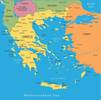The blue economy can be the engine of economic growth, the basis of socio-economic development and industrialization for many African countries, if well utilized.
The maritime industry, for example, is estimated at over $1 trillion, and there are other related and emerging sectors of tourism, offshore renewable energy, aquaculture, seabed extractive industries, marine biotechnology and bio prospecting.
Said Adejumobi, Southern Africa Director, UN Economic Commission for Africa (ECA) said that the Economic Commission for Africa is fully committed to supporting the African Union, Regional Economic Communities (RECs) and member States to ensure that the untapped potentials of the continent’s blue economy are fully realized.
He said the ECA will therefore continue to support the continent through research and analytical work, technical assistance, capacity building, advocacy and awareness raising activities so that it can collectively and sustainably benefit from its blue economy resources.
Adejumobi said Africa’s coastal sector remains largely underdeveloped, under-utilized, and poorly governed, which has enabled other forces from outside the continent to benefit more from it, than its citizens.
In China, for example, citing a report of the Economist Intelligence Unit, Mr. Adejumobi noted that “the ocean economy contributed $962 billion or 10 % of its GDP and employed over 9 million people in 2014. In the United States of America, the ocean economy was valued at about $258 billion or 1.8% of its GDP in 2010, and in Indonesia, the ocean economy contributed about 20% of its GDP which is similar to the ratio of other middle income oceanic countries”.
“While other countries and regions are harvesting the gains and returns from the blue economy, West Africa for example, is estimated to be losing about $2 billion annually from illegal fishing,” the ECA Southern Africa Chief said.
He said some Southern African countries have adopted strategic plans and development blueprints to transform their blue economy sector.
For example, South Africa hopes to grow its blue economy sector from 54 billion Rands and 316,000 jobs in 2010 to 177 billion Rands and about 1 million jobs by 2033, a feat Mr. Ademujobi said was remarkable.
Seychelles has developed a National Blue Economy Roadmap through which it seeks to accelerate economic growth and diversification, while Mauritius has Vision 2030, which provides an overall development framework, including on the blue economy sector.
“However, the blue economy sector is very complex and dynamic, with various challenges and risks which require more of collective action, cooperation, partnerships and regional frameworks in order to address them,” said Adejumobi.
Some of the associated challenges and risks of the blue economy include issues of governance and security of the ocean, piracy and terrorism, climate change, ocean environmental sustainability, poor infrastructure and technology, effective production connectivity with land-linked and land-locked countries, financing, and poor technical skills and capacity, he said, adding that more needs to be done at the regional level in the transformation of the blue economy sector through an integrated and holistic approach.



